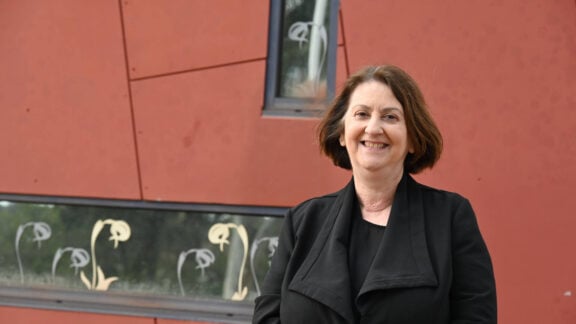ASPREE (ASPirin in Reducing Events in the Elderly), the largest primary prevention aspirin study ever undertaken in older people, reached a milestone this month, signing over 10,000 participants in Australia and the US.
The landmark study is investigating whether a daily low dose of aspirin can delay or prevent the onset of common age-related diseases such as heart attack, strokes, dementia and cancers in healthy people aged over 70.
Professor John McNeil, Principal Investigator for ASPREE, believes the study is extremely relevant for Australia’s ageing population.
“This is an impressive milestone for Australian clinical research. Aspirin is one of the most widely used medications in the world and frequently prescribed to people who have already suffered a heart attack or some forms of stroke.
“The ASPREE study is a world first as it focuses entirely on the health of our older population. It will determine once and for all if the benefits of aspirin outweigh the risks,” said Professor McNeil.
Dr Esther Apos, a Research Fellow at Monash University is part of the 90 strong Australian team monitoring the study’s data.
Melbourne-born Ms Apos told Neos Kosmos: “By 2050, 50 per cent of our population are going to be over the age of 60 and people are living a lot longer.
“The reason for the study is to explore the benefits versus the risks of aspirin. Aspirin is a blood thinner, and it does cause increased bleeding, but we’re looking at 19,000 people in Australia and the US to see if the benefits outweigh the risks.
“It’s never been done before in the population over the age of 70.”
Ms Apos says that to finish the study’s recruitment by early next year they need another 6000 people, but because of the study’s forms and resources participants need to be proficient in written and spoken English.
“What we’re hoping to see from the study is a prevention of the onset of heart attacks and strokes through taking aspirin.
“If we can prevent dementia or help in the prevention of certain strokes and cancers by taking one of the most common drugs, then that’s of huge benefit to people’s health and their quality of life.
Led by fellow researchers from Monash, the study is a collaborative effort involving the Menzies Institute, three other Australian universities and the Berman Centre for Outcomes and Clinical Research at the University of Minnesota.
With 2,000 General Practitioners registered as co-investigators, the study is the largest GP based clinical trial ever undertaken in Australia.
After screening, participants are assigned a daily tablet; half will be taking 100mg of aspirin and half a placebo. Participants also undergo free annual health checks for an average of five years.
The ASPREE study is being funded by the US National Institute on Aging, with support also from the Australian National Health and Medical Research Council (NHMRC) and the Victorian Cancer Agency (VCA).
Early results of the ASPREE study should be known by 2018. The ASPREE study is currently recruiting for healthy Australians aged 70 and over in Victoria, Tasmania, ACT/regional NSW and Adelaide.
To be involved, speak to your GP, or call ASPREE directly on 1800 728 745 (toll free from a landline) or visit www.aspree.org
Advertisement
Elderly Aussies sign up to aspirin research project
“If we can prevent dementia or help in the prevention of certain strokes and cancers … then that’s of huge benefit to people’s health and their quality of life.” Dr Esther Apos








